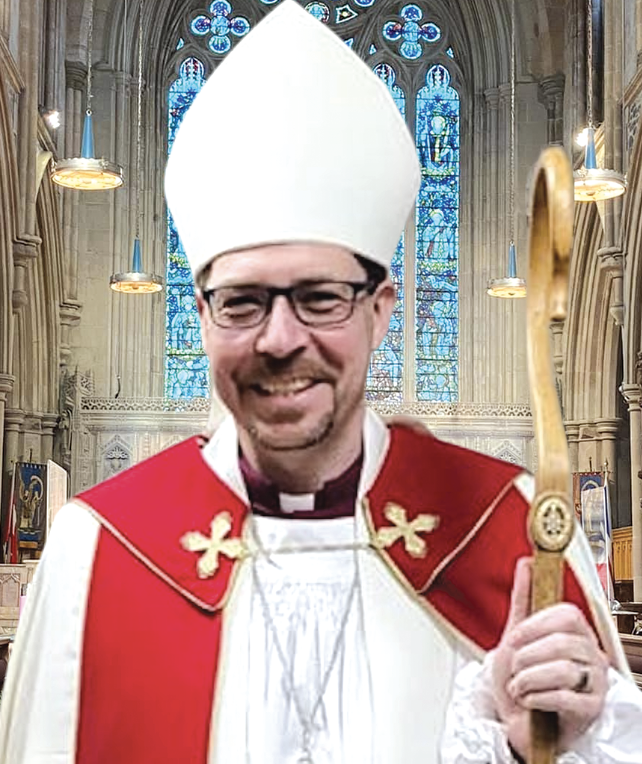On Thanksgiving, we traditionally come together to express gratitude for the abundance of blessings in our lives. We have much to be thankful for, provided that we woke up in a warm bed, in a comfortable home, had a nutritious breakfast, and had the freedom to worship in a beautiful church building. We should be grateful for these privileges.
However, many don’t have these comforts—those who didn’t wake up in a warm bed or a comfortable home, those who had nothing to eat, and those who couldn’t come to a church building. Shouldn’t they also have reasons to be thankful?
Thanksgiving is not just about celebrating our achievements and being grateful for what we have accomplished. If that were the case, what about those whose lives are filled with more failures than successes? What if all their hard work never pays off? Or if they find themselves homeless and sleeping in a tent one day? Should they be less thankful?
If Thanksgiving revolves around being thankful for what we have achieved on our own—our merits, business, or connections—more than for what God has done and is doing, then we have sidelined God. Our hearts can quickly become proud, and we may forget God, believing that our successes and achievements are solely the result of our strength and ability.
In an episode of The Simpsons, Bart Simpson sarcastically said in his grace before a meal: “Dear God, we paid for all this ourselves, so thanks for nothing.” Though it may seem humorous or startling, there are times when we’ve shared Bart Simpson’s perspective. There are times when we’ve felt that our actions deserved special credit or recognition from God and others; times when our pride hindered us from recognizing God in our lives and others.
Last year, I visited a homeless community living in tents on Confederation Hill in St. John’s. They advocated for proper housing and support, so we provided them with supplies like blankets, pillows, water, etc.
I spoke to several members who shared their hopes of finding housing. When I asked about shelters, they expressed concerns about safety and referred to them as, “just a band-aid solution that doesn’t address the real needs.”
“Having a home is about having human dignity,” one man told me.
This reminded me of our Baptismal Covenant promise: “Will you strive for justice and peace among all people and respect the dignity of every human being?”
In the Bible, Jesus spoke to someone who wished to follow him and become a disciple. The man said to Jesus, “Teacher, I will follow you wherever you go.” Jesus replied, “Foxes have dens and birds have nests, but the Son of Man has no place to lay his head” (Matthew 8:19–20)
Jesus and his disciples did not have a home to live in during their ministry. Instead, they relied on the hospitality and generosity of others, staying with friends, supporters, and even strangers.
Consider that. The Lord we love and follow was homeless.
Homelessness is a multifaceted issue. When individuals experience homelessness, their fundamental human rights and dignity are often compromised. Everyone deserves to be treated with respect and empathy, regardless of their housing situation. Homelessness does not diminish an individual’s worth or right to be treated with dignity. By acknowledging the inherent worth of every individual and ensuring access to basic needs, supportive services, and equal opportunities, we can work towards restoring human dignity for those experiencing homelessness.
I gained significant insights during my visit to the tent community on Confederation Hill. I thank those who spoke to me and asked for my prayers. I assured them that I would pray. However, there is much more that we need to do to support those who, like Jesus, have nowhere to lay their head.
Our central act of worship is celebrating the Lord’s Supper—the Holy Eucharist. “Eucharist,” in Greek, means “thanksgiving.” It involves taking the food that God has blessed us with, our daily bread and wine, and offering it as a sacrifice.
When we make sacrifices to God, when we give of our time, when we offer our wealth, when we return our daily bread to him, this is not something that we do for God’s benefit but for ourselves: we force ourselves to return to right relationship—to the true thankfulness that is the only perspective from which we can know God.
So, this Thanksgiving, let us express gratitude to God and extend gratitude to the people around us. As the church—God’s people—we need to deepen our relationships with God and one another. Doing so allows us to see beyond ourselves and acknowledge the blessings we receive from others. It is an opportunity to express our appreciation to those who have impacted our lives. It is important to remember that we are not meant to journey through life alone. We are interconnected, and we need one another. Pray for those who are homeless, and may we use the resources God has given us to help.


